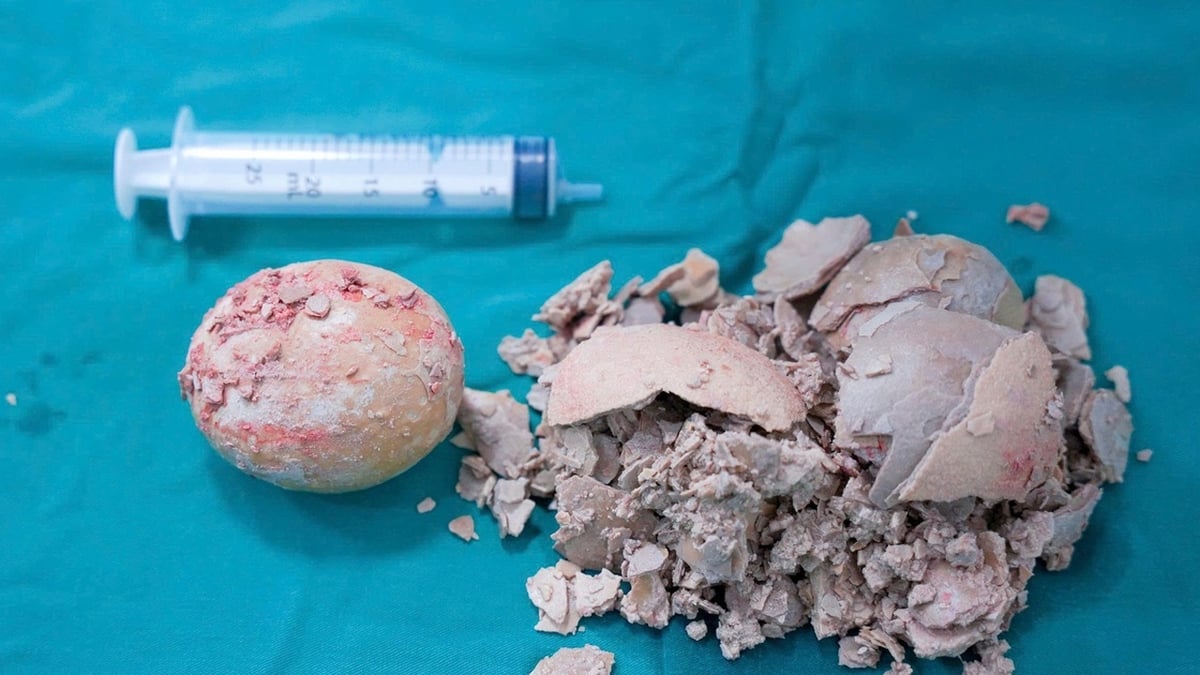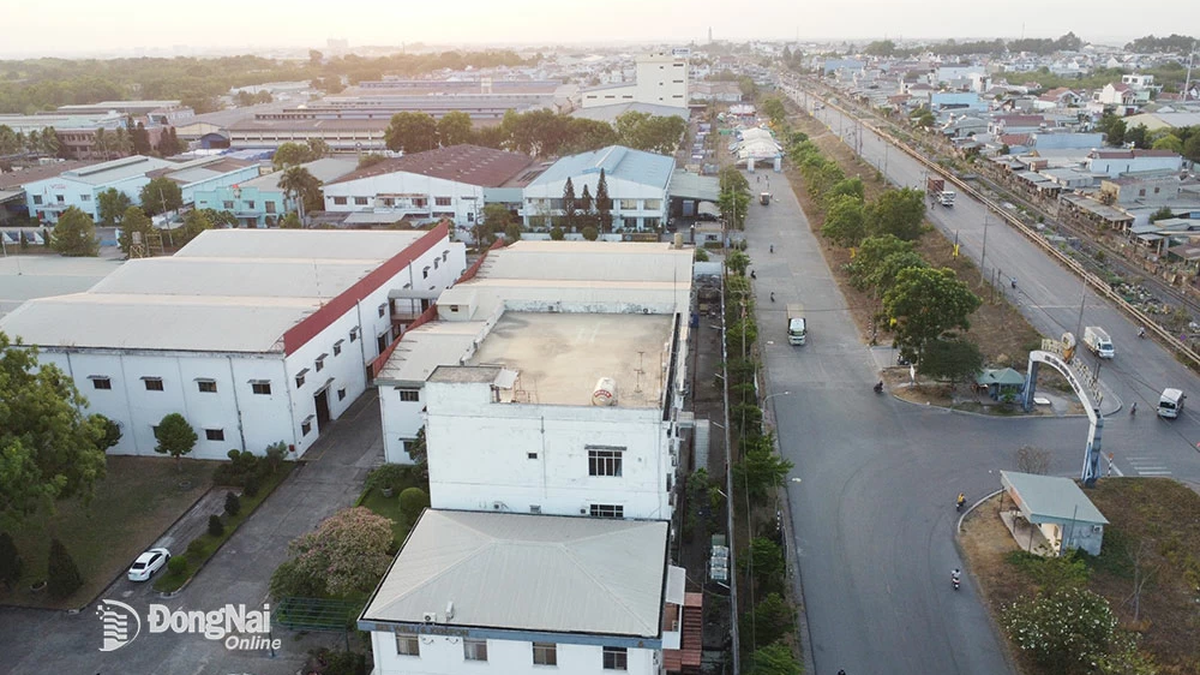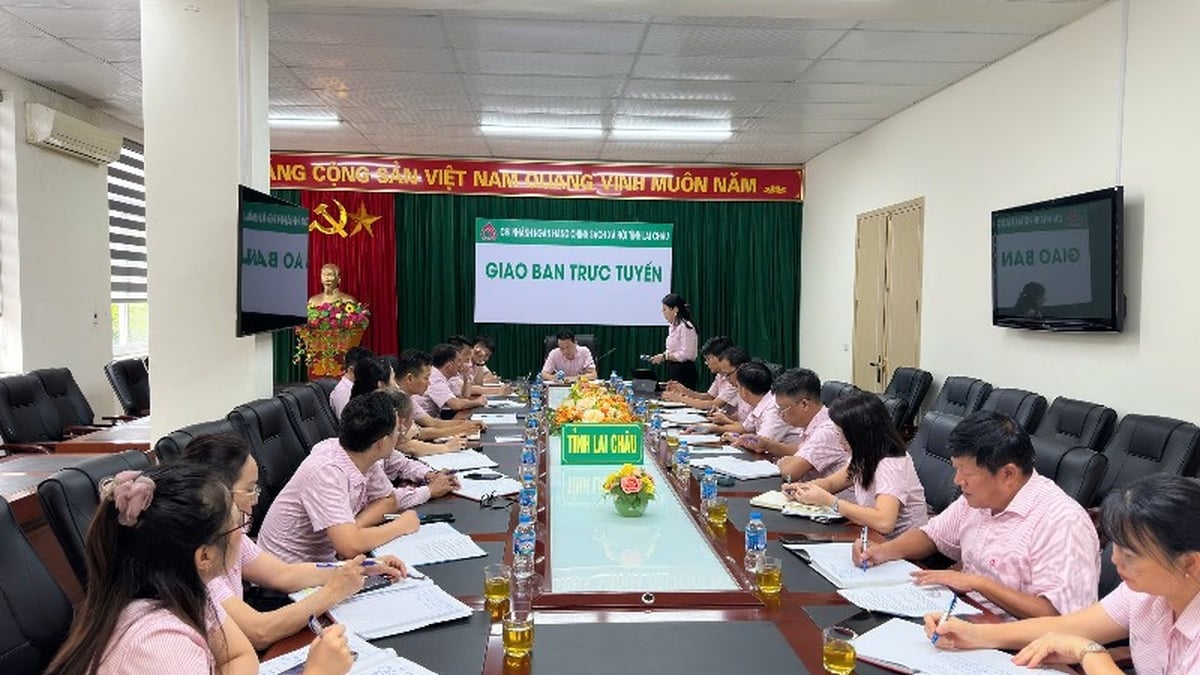
Prepare resources and drugs for long-term drug distribution
Ms. Hoang Thi M. (65 years old, Thanh Xuan ward, Hanoi city) has been managing her blood pressure for the past 5 years at the Central Geriatric Hospital. Once a month, she has to come to the hospital very early to be able to finish the examination in the morning and get her medicine. But this time, she was much happier when her condition was assessed as stable and she was given medicine for up to 90 days.
"I've heard a lot about it on the news, now that the doctor has prescribed a long-term prescription, we, the elderly, are very happy. We just have to listen to the doctor, follow the treatment, take the medicine on time to stabilize the disease, then come back to get the medicine after 90 days," said Ms. M., then handed over the prescription and waited at the insurance pharmacy counter.
Ms. Nguyen Thi Ng. (55 years old, Thanh Liet ward, Hanoi city) has been taking her mother to see a doctor for dementia for many years. Every month, if her father is not healthy enough to take her mother, she has to take a day off work to "accompany" her mother to the hospital. This time, her mother was given 60 days of medicine, she felt happier.
"The doctor told me that my mother needs to be especially careful in case she takes the wrong medicine because she has been taking it for a long time. Today, I will classify the medicine and tell my father to give my mother the medicine on time," Ms. Ng shared.

The Central Geriatric Hospital is the final hospital in the care and treatment of the elderly. The hospital's patients are mostly over 50 years old with many comorbidities, taking many medications, and limited mobility and social communication. Therefore, the introduction of Circular 26/2025/TT-BYT has been positively received by both patients and hospital medical staff.
Previously, the Central Geriatric Hospital had some experience in planning to implement long-term prescriptions before Circular 26 was issued.
During the Covid-19 period, under the guidance of the Department of Medical Examination and Treatment Management, the hospital implemented long-term prescriptions for elderly patients during the complicated epidemic period.
From the end of 2024, in preparation for drafting Circular 26, the Department of Medical Examination and Treatment issued Official Dispatch No. 1724/KCB-NV dated October 24, 2024 on piloting prescriptions for more than 30 days at a number of medical facilities. The Central Geriatric Hospital has proposed implementing prescriptions for more than 30 days for a number of diseases and groups of diseases and has reported statistics on the advantages and difficulties in long-term prescriptions, thereby drawing experience for the best implementation of Circular 26.
To implement Circular 26, the Hospital has prepared enough medicine to provide to patients (the medicine can be 2-3 times more than normal). At the same time, it ensures enough human resources to serve, coordinate medical examination and medicine dispensing.
Doctors at the Examination Department are trained and carefully study the list of diseases that can be prescribed for a long period of time, and at the same time discuss thoroughly with patients and their families to consider each specific case and decide whether to prescribe for 1 month, 2 months or 3 months.
The hospital also ensures a smooth information technology system, stable connection between the clinic, drug warehouse and pharmacy.
According to Master, resident physician Duong Van Nghia, Department of Examination, prescribing for more than 30 days helps the elderly reduce the number of times and time they go to medical examination and treatment facilities; save on travel and food costs; and contribute to limiting sources of infection in hospitals or on public transport.
Prescribing long-term medications with stable prescription values that are not changed for at least 2-3 months will increase patient compliance with treatment. This also helps reduce pressure on hospitals and treating physicians.
However, according to Dr. Nghia, because the prescription is long-term, doctors need to monitor more closely and connect with patients more often; especially for patients who need to control certain indicators such as blood sugar, blood pressure, heart rate, etc.
In addition, because of taking medication for a long time, patients who are not examined by a doctor can easily miss signs and symptoms of the disease progressing silently. Long-term use of medication can lead to forgetting the date of the follow-up visit or running out of medication, especially for people with dementia.
"The hospital requires doctors to provide patients with phone numbers and hospital hotlines. The hospital's official information channels are disseminated to patients so that patients can contact them when they have health problems or have questions about how to use medication... In addition, doctors must schedule detailed appointments for follow-up visits and instruct patients to come for follow-up visits on time, especially during long holidays," said Dr. Nghia.
Patients need to comply with treatment according to prescription.
According to Dr. Nghia, chronic diseases are diseases that require long-term treatment, stability is only temporary, people with chronic diseases are often elderly, have many diseases, so to maintain a stable condition, it is necessary to read the prescription carefully before leaving the medical facility, if there is anything you do not understand, you need to discuss immediately with the prescribing doctor or pharmacist.

Because patients receive many medications at once, there is a risk of confusing special medications with patients with dementia, patients with vision loss, etc. In this case, patients need the support of family members in classifying medications, preserving, arranging medications and taking medications at the correct time.
Patients must comply with injections or taking medication fully and on time by placing the medication next to the dining table or in the bedroom, setting a phone alarm to remind them to take the medication; regularly checking basic indicators such as heart rate, blood pressure, blood sugar at home or at nearby medical facilities such as pharmacies, ward or commune health stations to ensure early detection of possible abnormalities.
"When there are unusual signs of health, patients need to contact their doctor or the hospital hotline for immediate re-examination advice without waiting for an appointment," Dr. Nghia advised.
Source: https://nhandan.vn/nguoi-benh-cao-tuoi-huong-nhieu-tien-ich-khi-duoc-ke-don-thuoc-dai-ngay-post893461.html




















































![[Maritime News] More than 80% of global container shipping capacity is in the hands of MSC and major shipping alliances](https://vphoto.vietnam.vn/thumb/402x226/vietnam/resource/IMAGE/2025/7/16/6b4d586c984b4cbf8c5680352b9eaeb0)













































Comment (0)